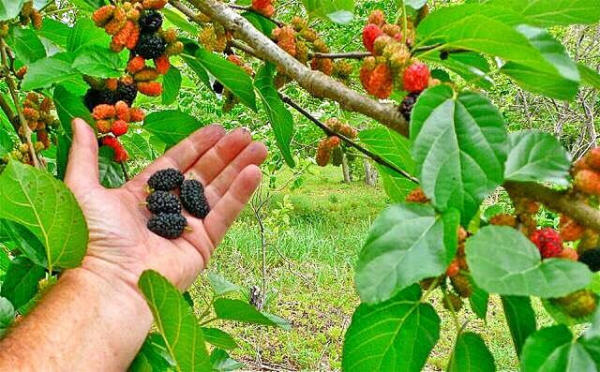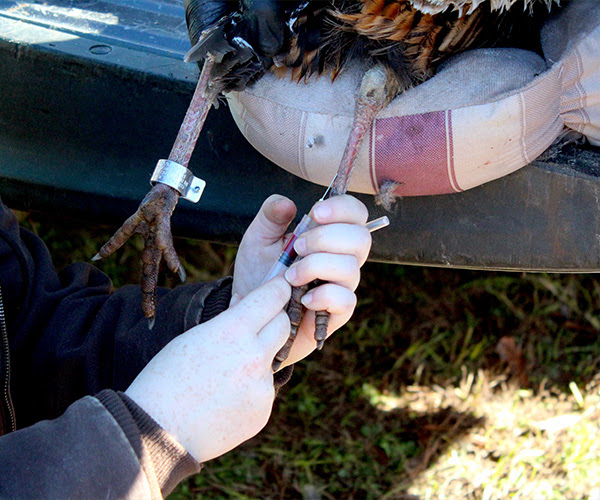Mulberries from Chestnut Hill Outdoors

It’s June. Newborn fawns are putting tremendous nutritional stress on nursing mothers. Meanwhile, antler growth rates have kicked into overdrive and rapidly growing wild turkey poults, not to mention the dozens of other bird species, are scouring the landscape searching for food.
One of the best ways to attract and hold more wildlife on your land, including deer, turkeys and a host of other wildlife species, is by providing the proper amount and type of natural food to meet their year-round nutritional needs. Food plots are one way, but you can widen the window of attractiveness significantly by establishing mast orchards.
Planting a perennial summer fruit plot of mulberries from Chestnut Hill Outdoors is a great way to fill potential nutritional gaps that are occurring right now. Mulberries are the very first soft mast shrub to fruit in spring, providing ripe fruit as early as April and May in the deep south and early June further north.
Mulberries (Morus rubra) grow throughout the eastern hardwood forest from New York to Florida and southern Minnesota to Texas, being best suited to plant hardiness zones 6-9. Mulberry bushes are very prolific, producing elongated fruits that look and taste like blackberries, but without the acids.
In addition to expanding available year-round nutrition for wildlife, another reason to establish mast orchards or perennial fruit plots is to minimize cost. Once established the orchards are relatively maintenance free and that’s especially true of mulberries. Having evolved in the eastern hardwood forest, native mulberries have no major pests, are disease resistant and require little or no maintenance or sprays, which is often not the case for many commercial varieties of soft mast trees and shrubs that are bred for fruit quality, not hardiness. They’re self-fruitful so they don’t need another tree to pollinate, though you’ll want to plant several.
Black and Everbearing mulberries are available from Chestnut Hill Outdoors in 1-gallon containers, 3-gallon containers and bare root in winter. They bear fruit in their second or third year and will typically grow to be 15-20 feet tall, but can grow to 40 feet and be tremendous producers of soft mast.
Chestnut Hill Outdoors is more than just a nursery. In order to ensure you receive the maximum benefit from their products, they also provide sound advice and instruction on proper planting and care. And they ensure the plants you receive are suited to your regional climate. For more on Chestnut Hill Outdoors products and how to care for them, visit ChestnutHillOutdoors.com, or call (855) 386-7826.






